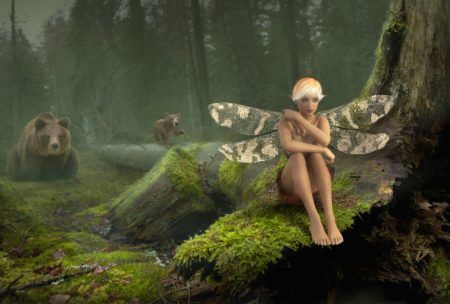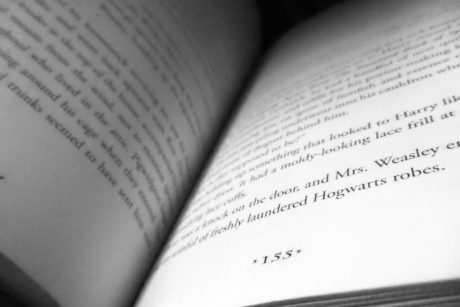Literature Masterclass: Your Guide To Analyze Fairytales. Read more.
Niina is an artist and folklorist, podcaster and YouTuber from Finland. She is also known by her online name Fairychamber.
Access all courses in our library for only $9/month with All Access Pass
Get Started with All Access PassBuy Only This CourseAbout This Course
Who this course is for:
- People interested in fairytales, magic, and storytelling
- Fairytale archetypes and symbolism
What you’ll learn:
- Stories behind fairy tales. How and where they originated
- How fairy tales have evolved and how we can find them in modern pop culture
- Fairytale character archetypes
- Origins of Cinderella, Mulan, Red Riding Hood, Snow White, and other famous fairytales
Requirements:
- Interest in fairytales and fairytale research
- Curiosity towards history and history of storytelling
Storytelling and fairytales have always been an important part of preserving oral culture and traditions. Fairytale is usually a short story that takes place in a magical setting, with human characters and other beings, and they face different kinds of obstacles.
Fairytales have worked as moral guides, entertainment, and also as inspirational stories during hard times.
In this class, we will go through seven different fairytales. These are Cinderella, Snow White, Rapunzel, Puss in Boots, Hansel and Gretel, Mulan, and Red Riding Hood. We will also go through different character archetypes, such as the villain and the hero. Different fairytale narratives like a damsel in distress and from rags to riches.
Archetypes
Archetypical characters in fairy tales fall into a certain category by their visual appearance, characteristics, personality traits, and their mission. We will find common archetypes in fairy tales, myths, and folklore. In the world of fairy tales, archetypes are universal, and similar archetypes appear in different cultures, and fairy tales are told in different parts of the world. Classical archetypes in Fairy tales are damsels in distress types of princesses like Cinderella and Snow White. Evil Stepmothers in the stories such as Hansel and Gretel and Sleeping Beauty. A wise old mage whose job is to help the protagonist in their journeys, such as Dumbledore in Harry Potter and Merlin, the wise guide of King Arthur.
Our Promise to You
By the end of this course, you will have learned how fairy tales have originated and evolved.
10 Day Money Back Guarantee. If you are unsatisfied for any reason, simply contact us and we’ll give you a full refund. No questions asked.
Get started today!
Course Curriculum
| Section 1 - Introduction | |||
| Introduction | 00:00:00 | ||
| Section 2 - Damsel In Distress Versus Active Heroine: Story Of Rapunzel | |||
| Rapunzel | 00:00:00 | ||
| Section 3 - Puss In Boots | |||
| Puss In Boots | 00:00:00 | ||
| Section 4 - Red Riding Hood | |||
| Red Riding Hood | 00:00:00 | ||
| Section 5 - Snow White | |||
| Origins Of Snow White | 00:00:00 | ||
| Section 6 - Hansel And Gretel | |||
| Symbolism Of Hansel And Gretel | 00:00:00 | ||
| Section 7 - Mulan | |||
| Mulan | 00:00:00 | ||
| Section 8 - Cinderella | |||
| Story Of Cinderella | 00:00:00 | ||
| Section 9 - Archetypes | |||
| Character Archetypes | 00:00:00 | ||
| Section 10 - Conclusion | |||
| Conclusion | 00:00:00 | ||
About This Course
Who this course is for:
- People interested in fairytales, magic, and storytelling
- Fairytale archetypes and symbolism
What you’ll learn:
- Stories behind fairy tales. How and where they originated
- How fairy tales have evolved and how we can find them in modern pop culture
- Fairytale character archetypes
- Origins of Cinderella, Mulan, Red Riding Hood, Snow White, and other famous fairytales
Requirements:
- Interest in fairytales and fairytale research
- Curiosity towards history and history of storytelling
Storytelling and fairytales have always been an important part of preserving oral culture and traditions. Fairytale is usually a short story that takes place in a magical setting, with human characters and other beings, and they face different kinds of obstacles.
Fairytales have worked as moral guides, entertainment, and also as inspirational stories during hard times.
In this class, we will go through seven different fairytales. These are Cinderella, Snow White, Rapunzel, Puss in Boots, Hansel and Gretel, Mulan, and Red Riding Hood. We will also go through different character archetypes, such as the villain and the hero. Different fairytale narratives like a damsel in distress and from rags to riches.
Archetypes
Archetypical characters in fairy tales fall into a certain category by their visual appearance, characteristics, personality traits, and their mission. We will find common archetypes in fairy tales, myths, and folklore. In the world of fairy tales, archetypes are universal, and similar archetypes appear in different cultures, and fairy tales are told in different parts of the world. Classical archetypes in Fairy tales are damsels in distress types of princesses like Cinderella and Snow White. Evil Stepmothers in the stories such as Hansel and Gretel and Sleeping Beauty. A wise old mage whose job is to help the protagonist in their journeys, such as Dumbledore in Harry Potter and Merlin, the wise guide of King Arthur.
Our Promise to You
By the end of this course, you will have learned how fairy tales have originated and evolved.
10 Day Money Back Guarantee. If you are unsatisfied for any reason, simply contact us and we’ll give you a full refund. No questions asked.
Get started today!
Course Curriculum
| Section 1 - Introduction | |||
| Introduction | 00:00:00 | ||
| Section 2 - Damsel In Distress Versus Active Heroine: Story Of Rapunzel | |||
| Rapunzel | 00:00:00 | ||
| Section 3 - Puss In Boots | |||
| Puss In Boots | 00:00:00 | ||
| Section 4 - Red Riding Hood | |||
| Red Riding Hood | 00:00:00 | ||
| Section 5 - Snow White | |||
| Origins Of Snow White | 00:00:00 | ||
| Section 6 - Hansel And Gretel | |||
| Symbolism Of Hansel And Gretel | 00:00:00 | ||
| Section 7 - Mulan | |||
| Mulan | 00:00:00 | ||
| Section 8 - Cinderella | |||
| Story Of Cinderella | 00:00:00 | ||
| Section 9 - Archetypes | |||
| Character Archetypes | 00:00:00 | ||
| Section 10 - Conclusion | |||
| Conclusion | 00:00:00 | ||



